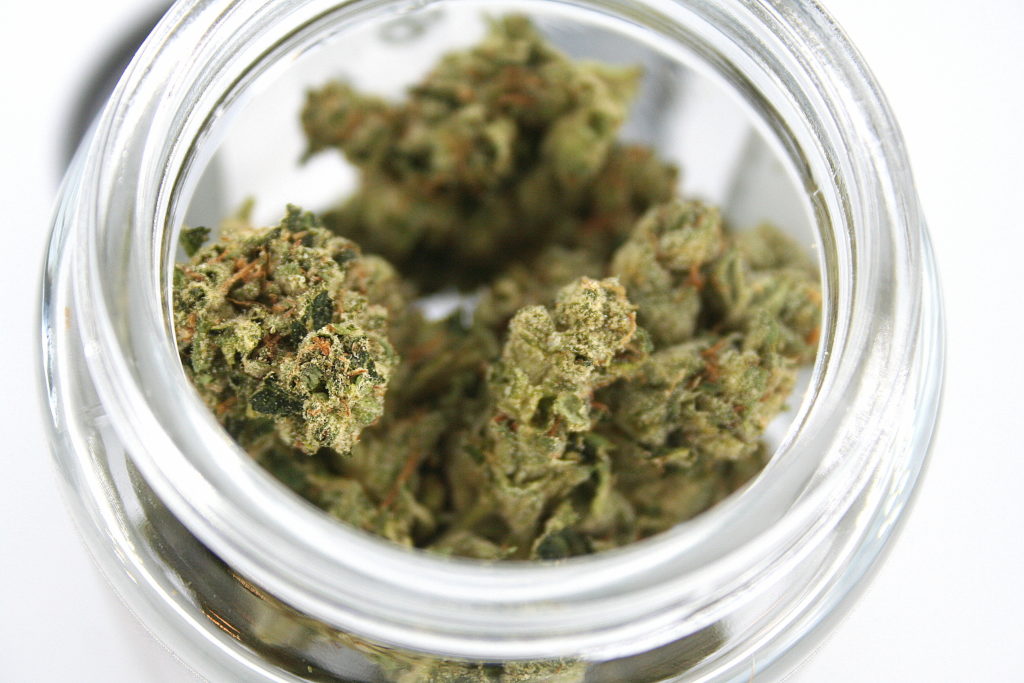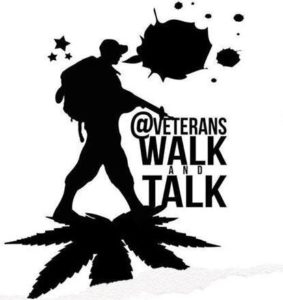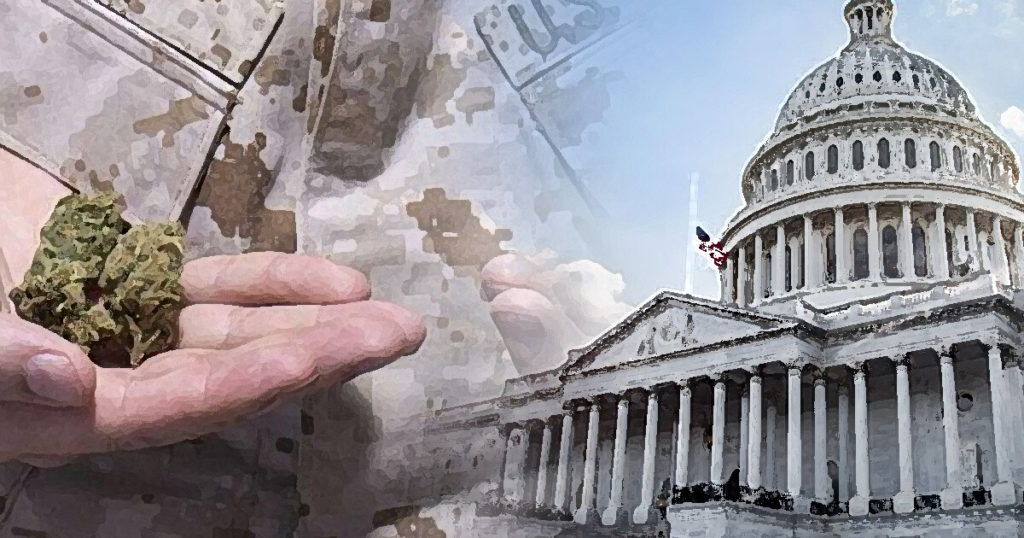
If you spend much time at all on any social media platform, you’re bound to come across “influencers”, or people (typically with a lot of followers and fans) being paid by some company to rep a certain brand… and they are being paid. The microeconomy of Influencers is said to be a $10 Billion niche annually, up from around $2B in 2017.
The idea is that whatever internet algorithm is making some social media star’s efforts go viral will somehow rub off onto the company that is dumping big bucks into a relatively new trend called Influencer Marketing.
When you look at our overall American economy, across all industries, more than 9 out of 10 marketing professionals say that they have taken advantage of Influencer Marketing and more than half say that they use influencers on a “regular” basis.
Though cannabis is a unique beast when it comes to marketing, it’s safe to say that many of these statistics regarding Influencer Marketing carry over, and we see it, right? There are the good ones, and there are the drunk, bigotry-spewing senior citizens.
The former could influence tens or hundreds of thousands of people to follow your every move on social media and may even influence a percentage of those followers to actually, ya know, pay for your products or services. With one (or three) controversial social media posts, the latter could influence harsh blowback on your brand, based on your past support or affiliation.
This new reality begs the questions…
-
What voices are you elevating?
-
What influence are your marketing dollars having?
-
What benefit are you providing to cannabis culture or society as a whole?
Yeah, we laugh at, we Like, we Follow a lot of folks online but the people who actually inspire us, who motivate us, who influence us are our pro-cannabis military veterans who we are proud to call our friends.
While they may hesitate to refer to themselves as ‘influencers’, these vets are heroes to us, and they are having far more influence over the rush of cannabis reform we are witnessing than any Instagrammer or YouTuber.
We reached out to Santa Cruz Veterans Alliance, the Veterans Cannabis Coalition, and Veterans Walk and Talk to ask them about their ongoing missions to influence the wave of change.
COMPASSION COMES NATURAL TO SANTA CRUZ VETERANS ALLIANCE
When we began to work with Santa Cruz Veterans Alliance (SCVA) earlier this year, that move came as a result of long friendships, deeply rooted in the respect that we have for them as individuals and as an organization.
If you are not familiar with SCVA, check out this article we wrote about them.
For a while here in California, the word Compassion was used as a marketing ploy by way too many people. Others, like SCVA, understood the meaning of the word and recognized the good that could be done under its true definition.

To us, something sorely lacking from the new era of regulated cannabis is Compassion. If companies and brands would reallocate significant portions of their available marketing budgets to compassion programs and the organizations that make them possible, imagine the influence that would have on society, instead of just the bottom line of a Profit & Loss sheet.
So we hit up our bud Seth Smith at SCVA and asked him about influencers, compassion, and how it all relates to cannabis, and he told us, “We don’t really think of ourselves as influencers…when it comes to compassionate use of cannabis, we at SCVA just see ourselves as staying true to and building off the example of the pioneers who came before us. People like Dennis Peron and organizations like WAMM.”
As you may know, Prop 64 initially imposed a brutal tax burden even on cannabis products that were earmarked specifically for compassionate use or donation. This made it incredibly costly to donate cannabis to those in need and threatened to end many compassion programs in the state. SCVA, however, continued the mission.
“We understood what would be required for us to maintain our compassion program under Proposition 64 so we took all of the necessary steps to ensure that we would be able to maintain our veterans compassion program providing over 100 veterans every month with free medicinal cannabis grown by us along with products donated by other cannabis businesses through our dispensary in Santa Cruz,” Smith told us, adding, “We’ve been donating every month without exception since 2011.”

The best way to support Santa Cruz Veterans Alliance is to buy top-shelf SCVA products or demand them at your favorite dispensary
“It is also our hope that the establishment of new compassionate care programs at dispensaries throughout the state will allow greater opportunity for researchers to survey populations with access to products that are available in stores, not just through NIDA,” Smith says. “The more questions we can answer about what medical ailments cannabis helps to treat effectively, the healthier our entire society will be.”
INFLUENCING A NEW NORMAL WITH VETERANS CANNABIS COALITION
When you look at the front lines of the battle for cannabis reform at the highest levels, you most often find two groups fighting for us – kids and military vets.
Too often, our lawmakers wrap themselves in the American flag and hide behind “supporting the troops” to win an election or dodge a tough question, but then they’re AWOL when it comes to actually passing legislation that would help those same troops and vets.
Veterans fighting for cannabis reform can attack our opponents from a pretty indefensible flank. Go ahead, talk shit about those vets… see how that goes for you, Congressman/Senator.
There are some incredibly influential pieces of cannabis legislation that have been advanced in the past year, in large part due to the efforts of veterans’ advocacy groups. When those bipartisan bills are eventually signed into law, the benefits will not stop at your military service record, we will ALL benefit from their work.
Speaking to our good friend Eric Goepel, co-Founder of Veterans Cannabis Coalition, he pulled no punches when it comes to where we need to focus our influence. Here are his words, uncut.
“Veterans are too often either put on a pedestal, treated as props, or considered objects of pity. The truth is that the 19 million living veterans today exist across every demographic and cross-section of American life. They span four generations of lived experiences, from the time when the entire nation mobilized to fight World War II to the small, endless wars fought across the planet by the current all-volunteer force.
So why do 1-in-5 people among such a diverse group self-report using cannabis medicinally? The question has been answered time and again, even if Congress refuses to listen. Veterans, like millions of patients, have found an incredibly powerful tool in the cannabis plant which has proven to them to be far more effective at managing and treating their conditions than their regularly prescribed cocktails of toxic and addictive pharmaceuticals.

Veterans are also the only group in the U.S. with an entire executive agency devoted to them: the Department of Veterans Affairs. At the heart of the VA’s mission are the words of Abraham Lincoln, who pledged the country to care for those who have borne the battle. Yet, when more than 100,000 veterans have died by suicide and overdose since 9/11, when suicide rates remain unchanged over 15 years and billions of dollars in government interventions, all while veterans are begging for research into more beneficial and lower risk treatments like cannabis–can the VA or Congress or any President in the last 20 years claim they are doing the best they can for veterans?
At the heart of all this unnecessary suffering is cannabis prohibition and the War on Drugs. At no point in U.S. history has drug policy not been profoundly tainted by racism, pseudoscientific bigotry, and hypocrisy. That cannabis prohibition was built on a seven-year campaign of vicious smears of Black and Latino people by an out-and-out white supremacist, Harry J. Anslinger, is unchallenged. But Congress refuses to admit, even as more than 2/3 of Americans are now in favor of adult-use cannabis legalization, that it continues to uphold one of the most destructive and irredeemably corrupt uses of state power in our history in the face of all reason and evidence.”
So, how do our nation’s vets factor into the change we so desperately need?
Goepel continues, “We hope that veterans will play a pivotal role in breaking down these inhumane laws on all levels: local, state, and national. Within each veteran is a potentially powerful message that too few have heard, or not heard often or loud enough, which can speak to issues of public health and justice like drug reform. Veterans can challenge the powers-that-be in ways that make it more difficult to ignore, though we will not be enough to achieve national change alone. But perhaps in seeing more veterans willing to fight against the racist and violent system that prohibits cannabis and acknowledge the medicinal and other benefits they receive, the silent majority will be willing to stand up and demand an end to the War on Drugs.”
Veterans Cannabis Coalition is self-funded and independent so they do not ask for donations, but if you appreciate their work and would like to help defer some of the costs, you can go to bit.ly/vccdonate. If you want to take part in any of their call-to-action campaigns and contact your members of Congress about cannabis legislation, text VCC to 52886 and follow the links or go to the front page of www.veteranscannacoalition.org
POSITIVELY INFLUENCING THE SOCIAL STIGMA, ONE WALK AT A TIME
At the end of the day, what is influence, really?
By definition, it means to make someone consider a thought that they may not have considered otherwise.
Notice, there is no mention of coupon codes or sales or profits in that definition. So, perhaps our veteran advocates aren’t actually redefining the word influencer but reminding us of what it means to begin with.
With that epiphany in mind, we had one more call to make – this time to longtime friend of the Beard Bros., Colin Wells, founder of Veterans Walk and Talk (VWAT). You can learn more about VWAT and their mission in this article we wrote about them, which may help you understand why we specifically wanted to talk to Wells about the unifying power of cannabis, and how veterans like him and his VWAT peers are using it to turn the tables on the social stigma surrounding cannabis use, particularly in the veteran community.
Like Goepel above, Wells let loose on the subject.
“When I met Bill Levers in early 2017 my path in cannabis and healing had begun. I knew the plant helped me. I knew it was expensive. I knew I couldn’t grow it at the time. I was just starting to be healthy again. Walking in the woods with cannabis was saving my life. I would walk and puff and scream and cry. After a while the solitude turned into isolation…that’s when I formed Veterans Walk and Talk.

Cannabis was initially not much more than bait.
But I learned quickly that cannabis is community.
Cannabis is a right.
Cannabis heals.
Cannabis is denied to us.
How do you explain cannabis culture to someone completely new to it? You don’t.
It’s self-explanatory…Cannabis embraces everyone who is willing to open their minds. Once you are healed by cannabis you cannot help but be part of its culture. If we as ‘influencers’ and advocates are going to stand on the shoulders of those that came before us, it is important that we wipe our feet.
We do this by giving it away compassionately. That is the truth of cannabis and healing.
You give it away because it is not anyone persons to keep.
By listening to the farmers and cannabis enthusiasts who truly love this plant, as well as routinely being asked to exploit veteran issues for corporate gain, I have seen for myself that making corporate money in the cannabis space is not worth compromising values, using disabled people, and stepping on others.
Veterans are not immune to this.
There are many veterans who advocate for cannabis who only help themselves.
They know who they are because they get a tingle when they read this.
We have the unique ability to use our privilege to open doors. A problem I see is that veterans are constantly used as tokens rather than leaders in the cannabis space. But that’s changing.
I for one refuse to bite my tongue anymore.
Healing is hard but it can be enjoyable. Cannabis is extremely fun. From growing it to smelling it and everything in between it is a joy. Healing our body and mind should not come with horribly debilitating side effects. It should come with community, culture, and fun.
We at VWAT will never stop fighting. Our group knows the truth of the plant. The truth of the fungus. Once you are awoken to it you sing it to everyone you can. Veterans have been dying by our own hands for years in record numbers. Cannabis and alternative therapies will stop that epidemic. I know this with all my heart. I have always said cannabis is the great unifier and it proved to be so when our numbers went from 2 veterans to nearly 30 per hike. We are now all over the country and advocating for the rights we have been denied. When I am thanked for my service, I now take that to mean my service to veterans and cannabis. That service has helped more Americans than any Taliban hunting I participated in.”
SPEND YOUR ‘INFLUENCE’ WISELY
Are we suggesting that you should divert a significant slice of your marketing budget to supporting veterans and veteran groups that are fighting your fight for cannabis reform?
Yep.
Will it lead to record sales for your company or brand?
Either nope or maybe, but that’s not the point if you are trying to have a real, lasting influence.

















